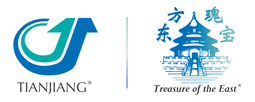6 Chinese Herbs often prescribed for Anxiety, Plus Self-Care Tips
Anxiety disorders have become a widespread concern. The World Health Organization (WHO) reports that over 300 million people are suffering from anxiety-related afflictions.
In its various forms – whether social anxiety, post-traumatic stress disorder, generalized anxiety disorder, panic disorder, or obsessive-compulsive disorder – anxiety may be characterized by persistent, debilitating worry or fear.
Primary approaches for managing anxiety have leaned heavily on medication and psychotherapy. However, a segment of the population experiences adverse effects from these treatments or seeks an alternative, more holistic approach. This is where a time-tested method like Traditional Chinese Medicine (TCM) shines.
With its role in health and wellness for over 2,000 years, TCM offers an array of natural, plant-based Chinese herbs that may help to alleviate anxiety.
What are the best Chinese herbs for anxiety?
The best Chinese herbs for anxiety can be found in six classical formulations: Gan Mai Da Zao Tang, An Shen Ding Zhi Wan, Tian Wang Bu Xin Dan, Gui Pi Tang, Wen Dan Tang and Jia Wei Xiao Yao San.
Before we explore these potent formulas and individual Chinese herbs for anxiety, let’s learn more about anxiety from a TCM perspective.
Understanding Anxiety from a TCM Perspective
In Traditional Chinese Medicine (TCM), anxiety is part of a broader categorization of emotional disturbance, including worry, overthinking, fear, and shock. It's believed that emotions are interconnected with physical health; thus, emotional stress can lead to physical disease and vice versa.
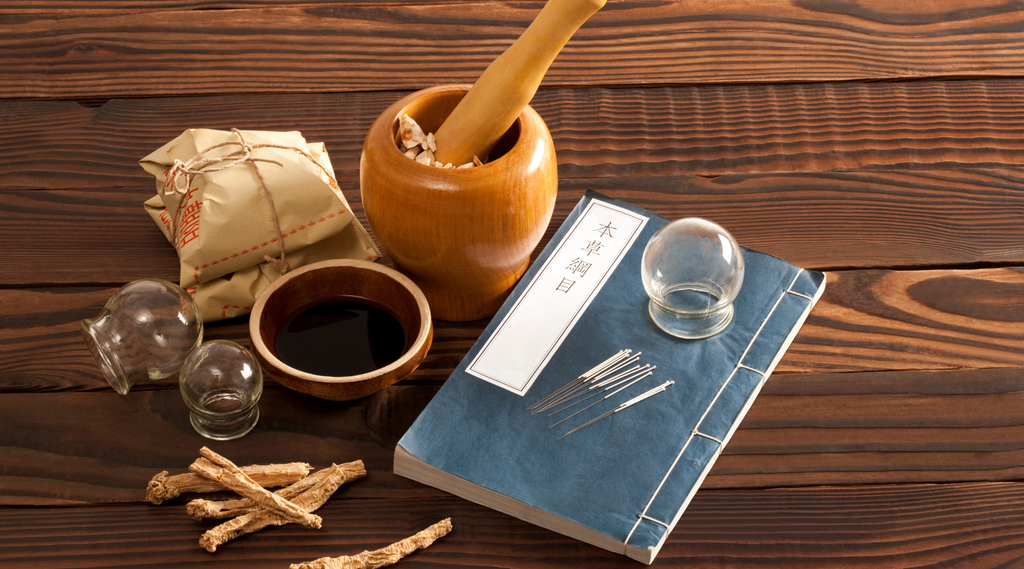
Anxiety, as understood by TCM, is primarily based on the functions of the Heart, Kidney, Spleen, Liver and Gallbladder systems. We’ll explore each system briefly, and their relation to anxiety.
Heart System
The Heart, according to TCM, doesn't only pump blood but is also considered "the seat of consciousness" or "ruler of the psyche." It influences mental activity and houses what's known as the Shen or mind.
Anxiety, in this context, can be seen as the result of a disturbed Shen. Other qualities that indicate a Heart imbalance include palpitations, insomnia, dream-disturbed sleep, poor memory, restlessness, or feeling uneasy.
Kidney System
In TCM, the Kidney system is associated with fear, but can also contribute to feelings of anxiety. It's responsible for growth, development, reproduction, and aging, and is seen as the source of our vital essence, known as Jing.
When that essence is depleted, whether due to chronic illness, poor lifestyle habits, or overwork, symptoms like fatigue, low back pain, ringing in the ears, and feelings of fear or anxiety may arise. Therefore, a strong Kidney system is fundamental for mental health.
Spleen System
In TCM, the Spleen is linked to the emotion of worry or overthinking.
Considered a central organ within the digestive system, the Spleen is responsible for metabolizing fluids, nourishing the body, and assisting in the extraction of Qi (nutritive energy) from food.
When Spleen Qi is in balance, an individual can have clear thinking and good concentration. If Spleen Qi is weak or deficient, however, it can lead to excessive worry, and in turn, anxiety.
Liver System
The Liver system, in TCM, is related to the emotion of anger, which can manifest as frustration, irritability, mood swings, or depression. The Liver is responsible for the smooth flow of Qi and helps to keep all emotions in balance.
When Liver Qi stagnates, the flow of energy in other systems can be disrupted, leading to disharmony and possible feelings of anxiety or stress. Symptoms can include frustration, moodiness, feeling of a lump in the throat, or irregular menstruation in women.
Gallbladder System
The Gallbladder system has a very distinct role in TCM. Besides its critical function in aiding digestion, it is considered the seat of decision-making and courage in the TCM framework. The Gallbladder system is also directly connected to the Liver system, which is associated with the smooth flow of Qi and blood throughout the body.
If the Gallbladder Qi is obstructed or deficient, TCM believes it can lead to feelings of timidity, indecisiveness, or even panic attacks. This relation can play a significant role in the manifestation of anxiety.
An Interconnected System
While these organ systems are often at the center of a TCM analysis regarding emotional health, it's important to remember that in TCM, the body is considered a whole, interconnected system. Therefore, any imbalance in one system can potentially affect the others.
Now that we have a better grasp of TCM’s holistic perspective on anxiety, let’s explore six herbal formulas that are often used to help create emotional balance.
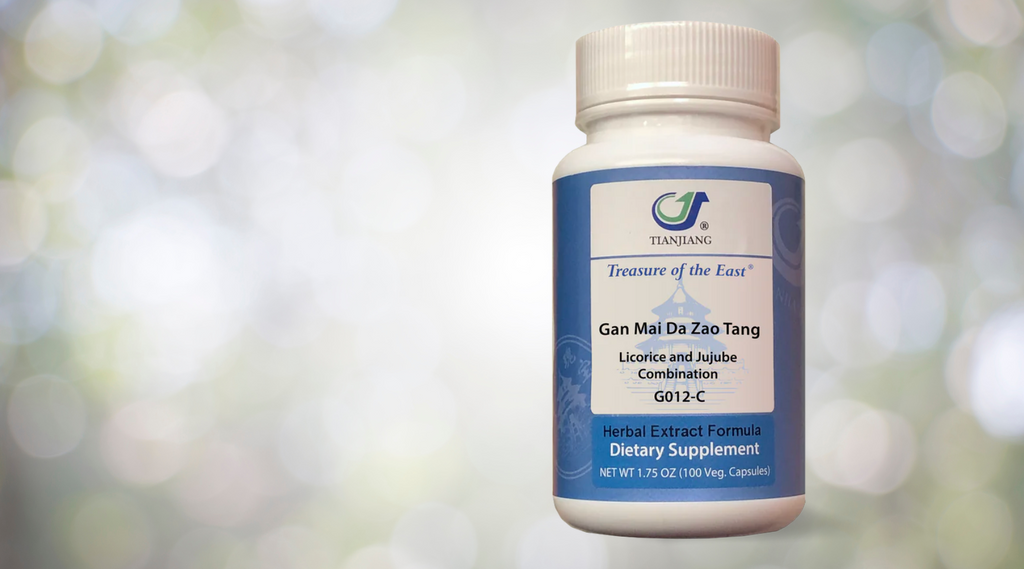
Gan Mai Da Zao Tang (Licorice and Jujube Combination)
Gan Mai Da Zao Tang is a heart-nourishing formula that is believed to alleviate anxiety that is caused by a pattern known as Heart Blood deficiency with Liver Qi stagnation.
According to TCM, emotions which become excessive can lead to Zang Zao or visceral restlessness, which refers to sadness, crying, and feelings of agitation.
Gan Mai Da Zao Tang may ease Zang Zao and related emotions, including depression, low energy, insomnia, mood swings and fatigue. Such individuals will typically have a rapid, thready pulse.
Belonging to the Calm Spirit category of formulas, Gan Mai Da Zao Tang is comprised of just three herbal ingredients – Gan Cao, Fu Xiao Mai, and Da Zao – which also make up the formula name.
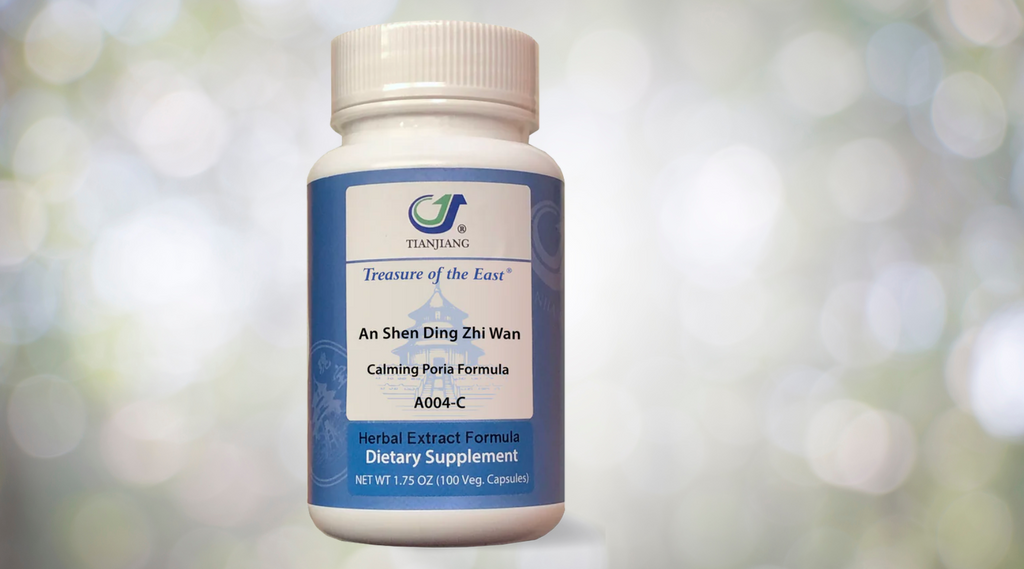
An Shen Ding Zhi Wan (Calming Poria Formula)
An Shen Ding Zhi Wan is often used when there is heart and gallbladder Qi deficiency due to mental stress, shock or startle. "An" means anchor, and "Shen" means spirit, signifying this formula's ability to bring balance and peace to overactive mental and emotional energy.
Consisting of six herbs, An Shen Ding Zhi Wan is traditionally used in TCM for calming the spirit, nourishing the heart, and tranquilizing the mind. Long Chi is a key herb in this formula that clears heat, relieves restlessness and calms the mind.
Often recommended by practitioners for restlessness, insomnia, anxiety and palpitations, this formula is believed to support mental wellness, and to provide nutritional support in the management of stress, anxiety and sleep disorders.
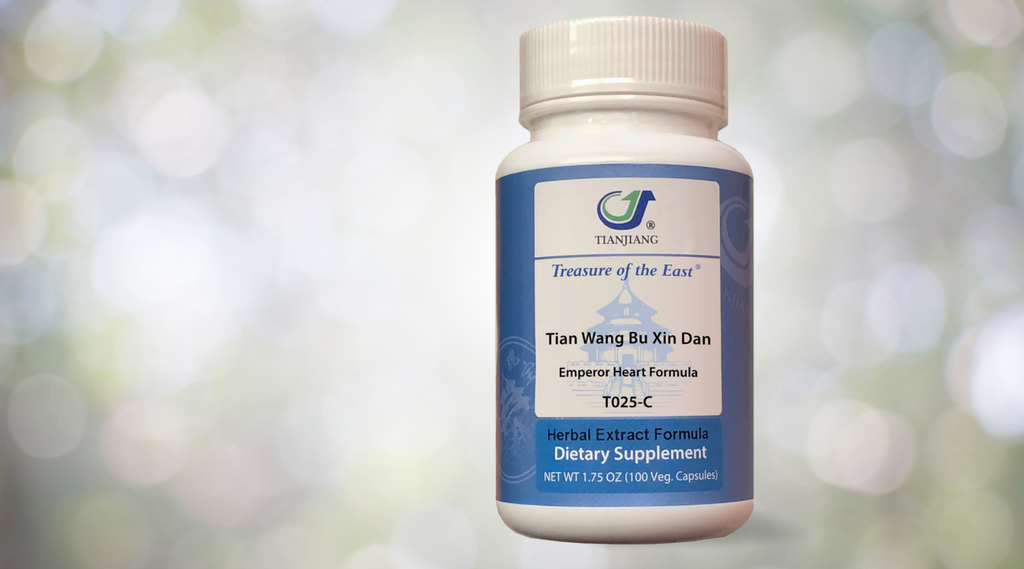
Tian Wang Bu Xin Dan (Emperor Heart Formula)
Known for its calming, restorative properties, Tian Wang Bu Xin Dan is used when there is Heart and Kidney Yin deficiency, and disharmony between the Heart and Kidney.
Fifteen herbs comprise this formula, with the aim of replenishing blood and yin, and restoring the Heart-Kidney relationship. One key herb, Xuan Shen, clears heat, cools blood, drains fire, resolves toxin, and nourishes yin.
TCM practitioners use this formula to address a range of mental-emotional, cognitive and physical health concerns, including anxiety, insomnia, forgetfulness, palpitations, night sweats and hot flashes.
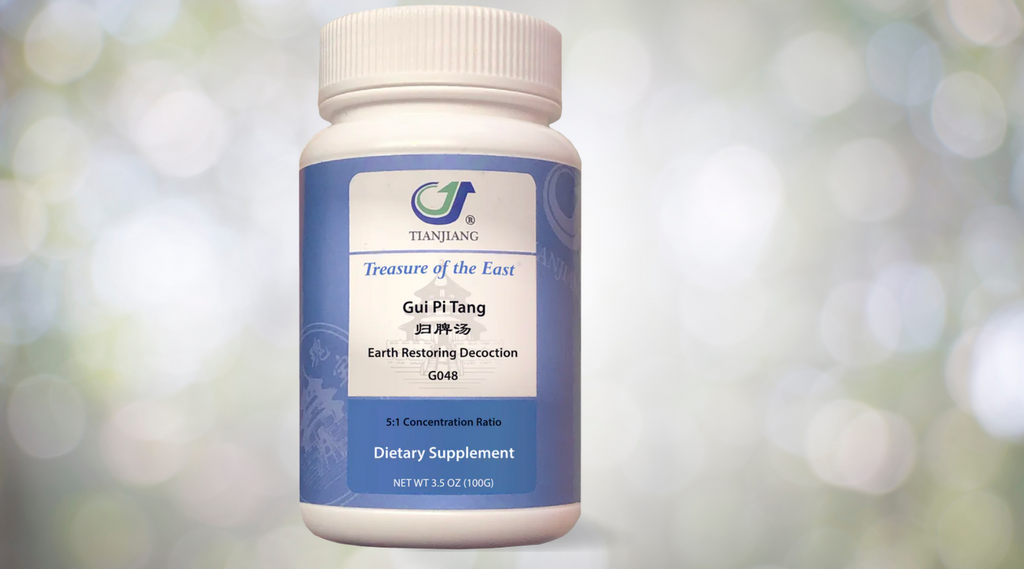
Gui Pi Tang (Earth Restoring Decoction)
Gui Pi Tang is widely known as a gentle, tonifying formula. It is used in TCM patterns of Spleen Qi Deficiency. As mentioned previously, if Spleen Qi is weak or deficient, it is unable to effectively carry out its many food-metabolizing functions, also leading to blood deficiency.
TCM practitioners often recommend Gui Pi Tang for anxiety, insomnia, poor memory, anemia, chronic fatigue, as well as digestive conditions associated with blood and Spleen qi deficiency.
Da Zao, one of the twelve herbs in this formula, is a sweet and warm herb that supplements the center, boosts qi, nourishes blood, and calms the spirit.
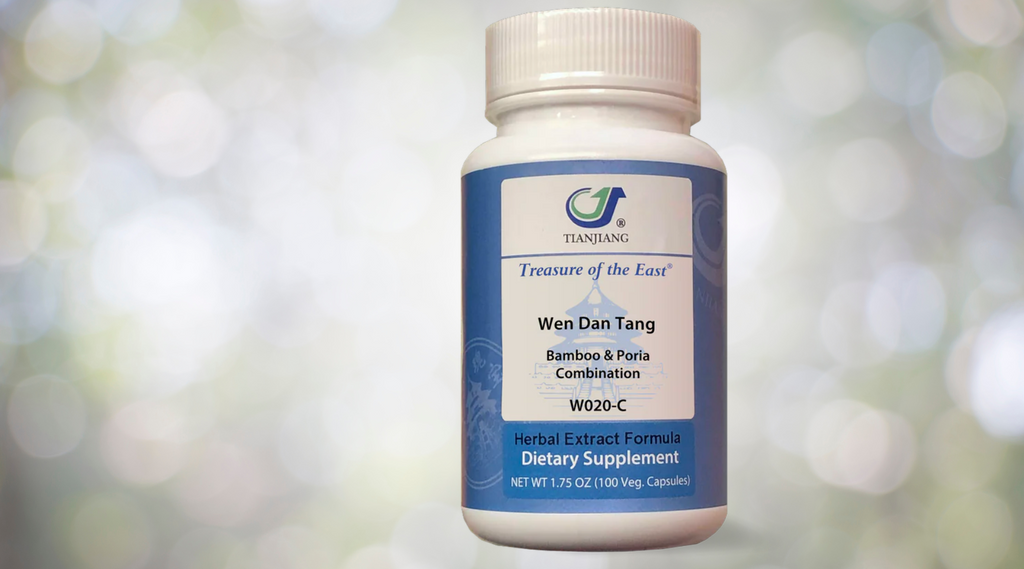
Wen Dan Tang (Warm the Gallbladder Decoction)
Wen Dan Tang is used for several patterns of Gallbladder disharmony. Key herbs in this formula include Ban Xia and Zhu Ru, which help to transform phlegm and clear heat.
Modern uses of Wen Dan Tang include helping with anxiety, depression, vertigo, and chronic mental disorders. Its calming properties may assist with sleep disorders and support cognitive health.
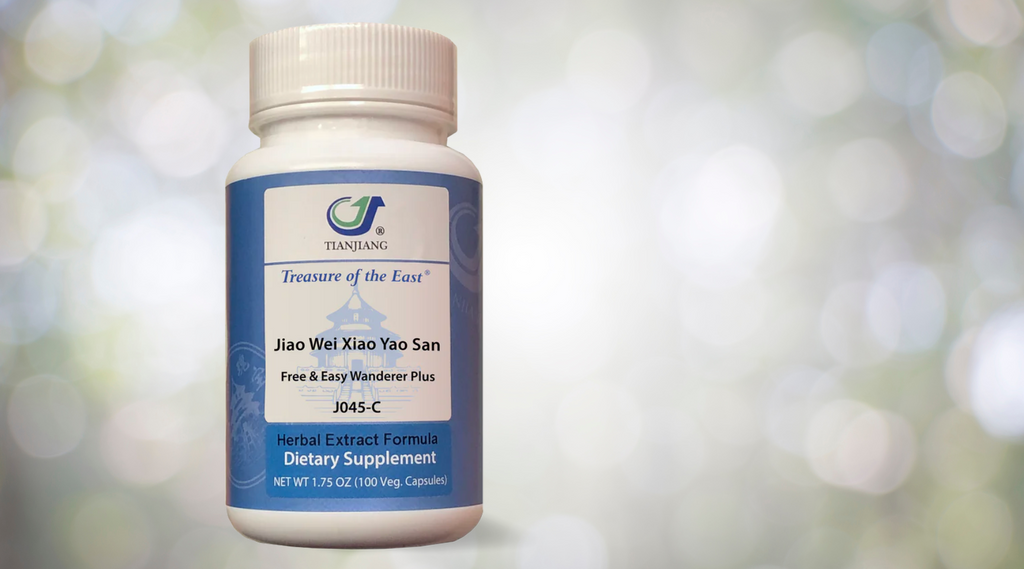
Jia Wei Xiao Yao San (Free & Easy Wanderer Plus)
Jia Wei Xiao Yao San is used when there is Liver Qi Stagnation turning to Heat; Spleen and Blood Deficiency; and Qi stagnation related emotional disorders.
This enhanced version of, Xiao Yao San incorporates Mu Dan Pi and Zhi Zi (jiao) and is used primarily to address hormonal imbalances and promote emotional wellness.
When recommended by a qualified TCM practitioner, Chinese herbs along with self-care practices and other natural therapies have the potential to mitigate anxiety symptoms.
Self-Care Tips for Reducing Anxiety
While anxiety can be a debilitating condition, there are numerous self-care practices that can help manage and reduce anxiety. These include meditation, Tai Chi, and specialized breathing exercises.
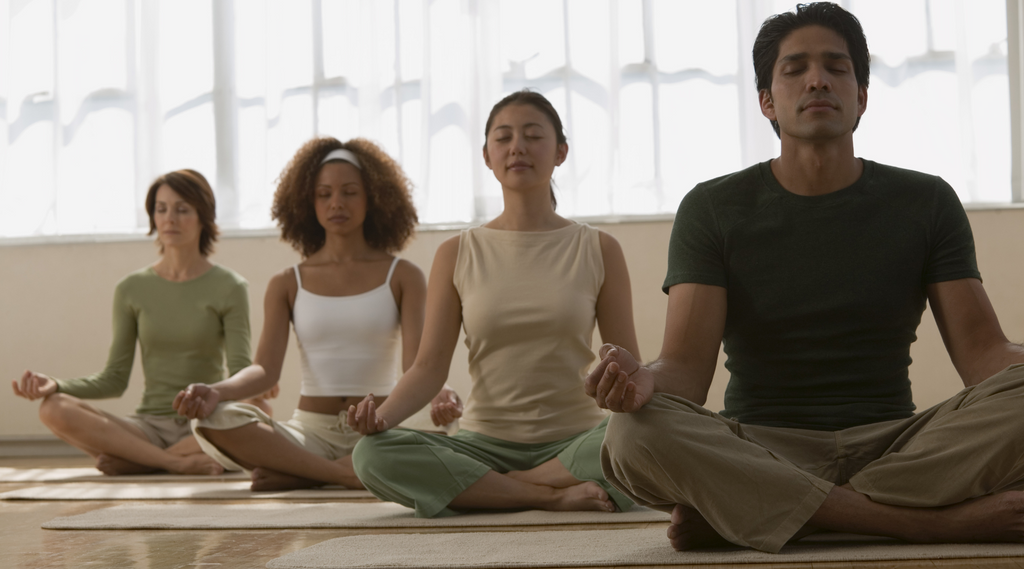
Meditation
Meditation is an age-old practice known to promote relaxation and mental calmness. Regular meditation may reduce the symptoms of anxiety disorders. Some tips for meditation practice:
- Find a calm space: Designate a quiet, comfortable area free from distractions.
- Start small: Initially, meditate for just 5 minutes per day, gradually building up to 15-20 minutes per session.
- Focus on mindfulness: Be present in the moment, acknowledge your fears and anxieties without judgment, and then let them go.
Tai Chi
Tai Chi is a martial art form focused on gentle movements and deep breathing. Studies show Tai Chi may help to reduce anxiety. Unlike other martial arts, Tai Chi involves continuous, smooth, and slow motion which helps the mind focus and calm. Tips for getting started:
- Find a teacher: Tai Chi instructors can be found in person and online.
- Practice regularly: Consistency is key, so whether it's 15 minutes daily or one hour twice a week, ensure you make it a regular part of your routine.
Breathing Exercises
Breathing exercises can be powerful actions that quickly calm the mind and body. Here's an easy exercise known as "4-7-8 breathing."
- Relax the body: Find a quiet place and sit comfortably. Close the eyes and let the body relax.
- Control the breath: Inhale slowly through the nose for four seconds. Hold the breath for seven seconds. Then, exhale slowly through the mouth for eight seconds.
- Repeat: Continue this cycle for at least four breaths or until the body and mind have calmed down.
These are just a few self-care activities that can provide effective anxiety management. It can be particularly beneficial to keep a journal to record any improvements, which can serve as a motivation for maintaining these practices.
Conclusion
Traditional methods, such as Chinese herbs and acupuncture combined with self-care practices may provide a useful alternative or supplement to conventional approaches to anxiety management.
We hope this article has shed some light on the potential benefits of these herbs for anxiety. Our wish is to empower TCM practitioners and their patients with premium-level Chinese herbs to improve health and wellness naturally.
It is important to consult with a qualified Chinese medicine practitioner to determine the most appropriate formula for individual needs.
Practitioners, did you know...? Treasure of the East’s full-spectrum extracts contain the same active chemical constituents as raw herbs! Register for a professional account today, or read on to discover all the benefits of including full-spectrum granules in your herbal pharmacy.
This article is provided only as an educational resource - it is not intended or implied to be a substitute for professional medical advice, and the herbs and/or formulas within are not intended to diagnose, treat, cure or prevent any diseases. This information is intended for only licensed healthcare practitioners.
